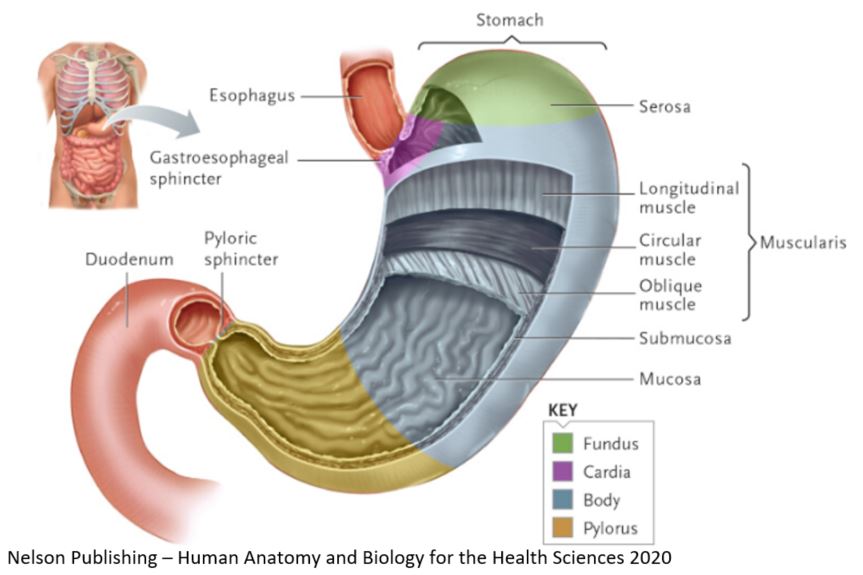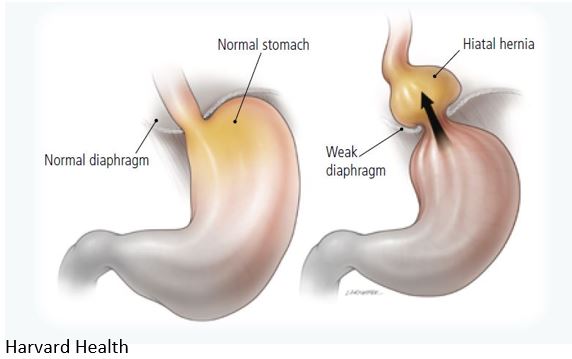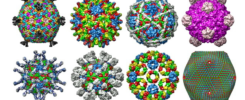It seems very counter-intuitive but there is a cool physiological explanation for why low stomach acid production causes acid reflux, also called heart burn, or GERD…..Gastroesophageal Reflux Disease.

When we eat food, we chew it into a moist bolus that we swallow, then it moves down the esophagus to the stomach. Notice in the diagram above in the purple cardia region, that there is a ring of muscle between the esophagus and the stomach called the gastroesophageal sphincter (also sometimes called the lower esophageal sphincter or the cardiac sphincter). This ring of muscle must close properly once the stomach muscles start contracting to mix and mechanically breakdown our meal. Notice that the stomach has 3 layers of muscle, and they contract quite forcefully to help us breakdown and digest food. The stomach produces hydrochloric acid (HCl) which can be squeezed up into the esophagus during digestion if that sphincter does not close properly, which then causes the symptoms of GERD. It is tempting to get rid of the symptoms by taking an antacid, no more acid, problem solved, right?
HCl is essential for digestion:
- Activates the enzyme pepsinogen to become pepsin that can then start to digest protein
- Kills pathogenic bacteria and fungal organisms that we consumed with our food (we consume a remarkable number of organisms and HCl is part of our first line of defense in preventing infection)
- Helps to ionize minerals to that they can be absorbed
- Acts as a signal for the gastroesophageal sphincter to close
Not producing enough HCl, called hypochlorhydria, can greatly impede digestion and absorption of nutrients, as well as increases risk of food poisoning and other gastrointestinal infections. Taking antacids on a continual basis will perpetuate the root cause of the symptoms. Furthermore, acid is required trigger the sphincter to close and prevent acid reflux, so even though it seems like we should reduce the acid level, we actually need to increase acid so that the sphincter will close.
One way to reduce acid reflux is by adding acid (like vinegar, which is acetic acid) to your meal, like a nice salad with homemade dressing, or taking a digestive aid supplement that contains betaine hydrochloride.
What causes low stomach acid?
- As we age we tend to produce less stomach acid and is quite common in people over age 65
- B vitamin Deficiency – B vitamins are required for the production of HCl
- Long term antacid use, particularly medications like proton pump inhibitors that prevent the production of HCl
- Overgrowth of Pylori, which is a bacterial infection that is the primary cause of ulcers. If left untreated it can affect HCl production.
- Gastric bypass surgery – where sections of the stomach are removed and less HCl can be produced
- Chronic stress – stress triggers our fight or flight response, the sympathetic nervous system branch that specifically inhibits the digestive system….we need the opposite system, the parasympathetic system, to activate digestion. The parasympathetic nervous system is our “rest and digest” response.
Contributing factors that make gerd worse
- Eating large meals – increases the pressure in the stomach that can force acid up into the esophagus
- Not chewing food enough – it is more work for your stomach to mechanically break down large bites of food, the longer food is in the stomach, the more time there is for acid to be squished up into the esophagus
- Obesity – especially excess abdominal weight because the excess visceral fat put physical pressure on the digestive system
- Eating too close to bedtime – if food has not yet fully moved from the stomach to the intestines then when you lay down, gravity can allow stomach contents to seep up into the esophagus
- High levels of anxiety or chronic stress as explained above
- Smoking and drinking excess alcohol – nicotine and alcohol both cause the gastroesophageal sphincter to relax – we want that to close tightly while the stomach is doing its thing
- Low physical activity level – more physically active people tend to have healthier digestive systems that can effectively break down and digest food in an appropriate period of time
- Hiatal hernias – when a portion of the stomach is pushed past the diaphragm and then the pressure prevents the sphincter from closing (see diagram below)

If you have any of these symptoms, you may have low stomach acid
- Feeling a sense of fullness for a long time after eating
- Bloating and excess gas production
- Feeling nauseous or stomach pain after eating
- Undigested food in bowel movements
- Frequent digestive infections
- Mineral deficiencies – this can cause a multitude of symptoms depending on which minerals are low but can include brittle nails, dry skin, and hair loss (those 3 tend to be significant indicators of mineral deficiencies), iron-deficiency anemia, weakness and fatigue, neurological issues such as numbness and tingling. These (along with increased infections) would eventually occur with chronic use of proton pump inhibitors (PPIs). Sometimes PPIs are required short term until the condition gets under control but they should not be a long-term solution.
What can we do about it?
In order to reduce the symptoms of GERD we would want to treat the underlying cause so various factors will affect different people due to the underlying cause.
- Depending on the severity it may be beneficial to take a digestive aid supplement that contains betaine hydrochloride
- Can add vinegar to meal – apple cider vinegar also contains probiotic bacteria that are beneficial for helping us to digest food
- Eat smaller meals
- Don’t eat meals that are very high in fat – fat causes the whole digestive process to slow down, making food and acid stay in the stomach for much longer than normal
- Chew enough – you don’t have to make it into a total pulp but the more you chew the easier it is on the rest of your digestive tract
- Make sure you are not vitamin deficient – Eat whole foods, plants and animals, and avoid refined processed foods. If you get a multivitamin supplement, the irony is that when you have low stomach acid you won’t be able to break down the pill if it is a cheap hard tablet. A powder supplement in a capsule is much easier to break down and absorb if you have poor digestion. You will generally find better quality supplements in a health food store.
- Relax while you are eating! Sit at a table and take the time to let your parasympathetic nervous system kick in and signal your digestive secretions and smooth muscle contractions. Eating on the go is not optimal even if you don’t have GERD.
- Don’t smoke or drink too much – they inhibit closing of the sphincter
- Don’t eat a large meal within 2-3 hours of going to bed – if you stil have the majority of symptoms at night then raising the head of the bed slightly is sometimes enough to allow gravity to help keep acid down in the stomach
- Work on reducing any excess belly fat and add in a little daily exercise
If you don’t see improvement within a week then you may want to visit your doctor to make sure you don’t have any underlying conditions such as H. pylori infection, hernia, Barrett’s esophagus or some other condition that may need specific medical treatment. If GERD is left untreated it can cause many serious complications including inflammatory conditions, ulcers, bleeding, changes in cells that can lead to esophageal cancer, and problems swallowing that can cause choking. GERD is no small matter and should not be ignored.
Fun Fact: When your stomach is empty is has a capacity of about 75-150ml (about half a cup or 4-8 ounces). Depending on the size of the person (bigger people have bigger stomachs), a typical adult stomach can hold 1-1.5 litres (4-6 cups) of food! This can increase to massive proportions if you constantly eat large meals….like Joey Chestnut who currently in 2020 holds the world record for eating 74 hotdogs! That is 15 pounds (6.8kg) of food!


Thanks Wendi. Very helpful information regarding GERD.